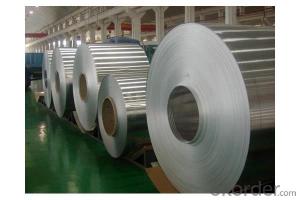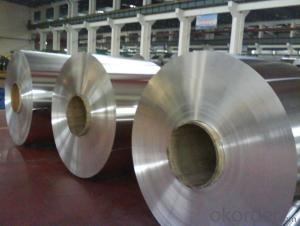Mill Finish Aluminum Coil for Metal Roofing 1XXX 3XXX 5XXX
- Loading Port:
- Shanghai
- Payment Terms:
- TT OR LC
- Min Order Qty:
- 5 m.t.
- Supply Capability:
- 1000 m.t./month
OKorder Service Pledge
OKorder Financial Service
You Might Also Like
Item specifice
Mill Finish Aluminum Coil for Metal Roofing 1XXX 3XXX 5XXX
1.Structure of Mill Finish Aluminum Coil for Metal Roofing 1XXX 3XXX 5XXX
Aluminum Sheets are strengthened and cut from raw materials with different alloys, such as AA5005, AA5052, etc. They are easy for processing in different shapes, good in intensity and can be quickly installed. Aluminium Sheets for Energy Saving Curtain Walls are good in energy saving, weather resistance, fire resistance, easy for maintenance and with many colors.
Aluminium Sheets for Energy Saving Curtain Walls are widely used in construction of metal walls, metal ceilings, car decoration, advertizing panels, etc.
2.Main Features of Mill Finish Aluminum Coil for Metal Roofing 1XXX 3XXX 5XXX
•High intensity
•Easy to be processed and shaped
•Weather resistance
•Anti-pollution & environment protection
3. Mill Finish Aluminum Coil for Metal Roofing 1XXX 3XXX 5XXX Images
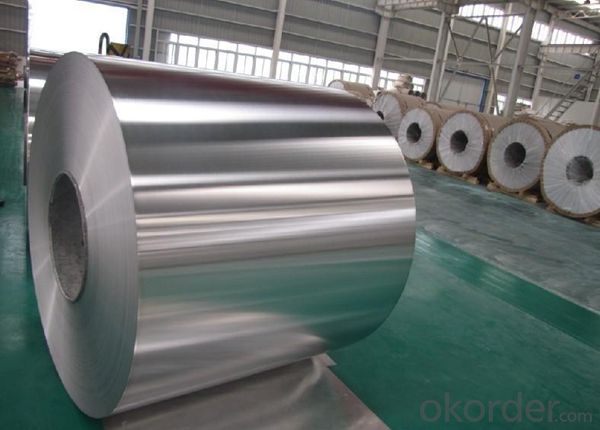
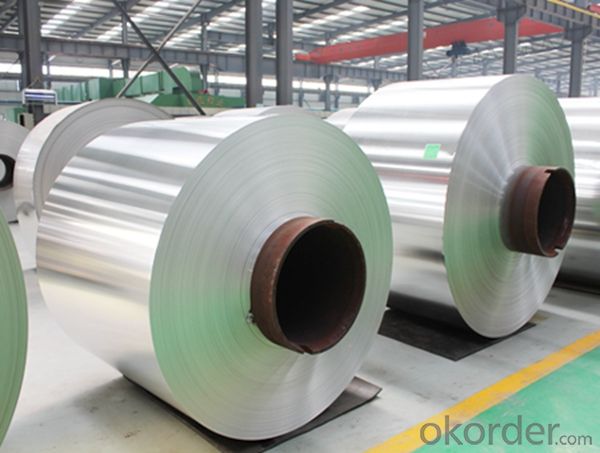
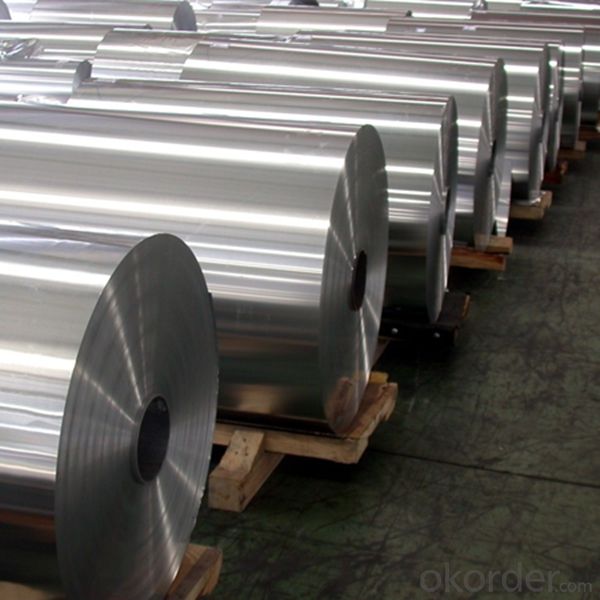
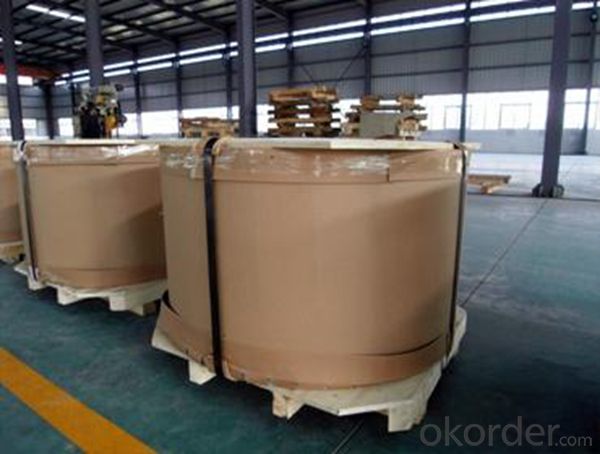
4.Specification of Mill Finish Aluminum Coil for Metal Roofing 1XXX 3XXX 5XXX
Alloy Number | AA5XXX 1XXX 3XXX |
Temper | H12, H14, H16, H18, H22, H24, H26, H32, HO, F |
Thickness | 0.1mm – 500mm |
Width | 10mm- 2200mm |
Standard | GB/T3880-2006, ASTM, ISO, EU standard |
5.FAQ of Mill Finish Aluminum Coil for Metal Roofing 1XXX 3XXX 5XXX
A.What about inspections to guarantee quality?
For each order for Aluminum Sheets with Mill Finished Surface AA5XXX, we will arrange strict inspection for raw materials, inspection during production and inspection for finished goods.
With requirement of customers, we also can arrange the third party inspection.
B.What about delivery?
We will put order for Aluminum Sheets with Mill Finished Surface AA5XXX in production schedule after order gets confirmed against copy of TT or L/C. Normally it takes about one month for production. Exact shipment schedule is different based on different sizes and quantity.
C.What is the MOQ?
5 tons for each size.
D. Where have you exported aluminium sheets?
We have exported aluminum sheets to many countries. Main markets include South East Asia, Middle East, North America, South America, etc.
- Q:Are aluminum coils prone to corrosion?
- Aluminum coils have a tendency to corrode, as aluminum is a reactive metal that readily develops a protective oxide layer upon contact with oxygen. Nevertheless, certain environmental elements like moisture, salt, or corrosive substances can compromise this oxide layer. Consequently, corrosion may gradually manifest on the surface of aluminum coils. To mitigate this risk, regular maintenance and appropriate care, such as cleaning and applying protective coatings, can be beneficial.
- Q:What is the role of aluminum coils in the transportation industry?
- Due to their numerous advantageous properties, aluminum coils play a crucial role in the transportation industry. One of their primary uses is in manufacturing transportation vehicles, including cars, trucks, trains, and airplanes. Aluminum, being a lightweight material with a significantly lower density than steel, is an ideal choice for enhancing fuel efficiency and reducing weight in transportation systems. The use of aluminum coils in transportation vehicles offers several benefits. Firstly, their lightweight nature helps increase fuel efficiency by reducing the energy required for movement. This results in lower fuel consumption, reduced greenhouse gas emissions, and cost savings for transportation companies. Additionally, aluminum coils possess excellent corrosion resistance properties, enabling transportation vehicles to withstand harsh weather conditions such as rain, snow, and exposure to salt. This durability is particularly important for vehicles operating in coastal or snowy areas. The resistance to corrosion also extends the lifespan of the vehicles, reducing maintenance costs. Furthermore, aluminum coils have a high strength-to-weight ratio, making them a reliable choice for structural components in transportation vehicles. This strength allows manufacturers to design lighter and more efficient vehicles without compromising safety or durability. Moreover, the use of aluminum coils contributes to the sustainability efforts of the transportation industry. Aluminum is highly recyclable, and the recycling process requires significantly less energy compared to its initial production. By utilizing aluminum coils in transportation vehicles, the industry can minimize its environmental impact and reduce reliance on non-renewable resources. In conclusion, aluminum coils play a pivotal role in the transportation industry by enhancing fuel efficiency, providing corrosion resistance, enabling lightweight design, offering structural strength, and promoting sustainability. Their use in manufacturing transportation vehicles leads to cost savings, reduced emissions, improved durability, and enhanced overall efficiency in the transportation sector.
- Q:Can aluminum coils be used for pharmaceutical packaging?
- Yes, aluminum coils can be used for pharmaceutical packaging. Aluminum is a popular choice for packaging in the pharmaceutical industry due to its excellent barrier properties, light weight, and resistance to corrosion. It provides a protective and hygienic environment for pharmaceutical products, ensuring their safety and extending their shelf life.
- Q:what language did Aluminum and Uranium originate from ? Who or what were they named for ?
- The ancient Greeks and Romans used alumen (alum, potassium aluminium sulfate, K2Al6(OH)12(SO4)4) in medicine as an astringent, and as a mordant in dyeing. Alum was exported from ancient Greece and Italy. In 1761 the French chemist Louis-Bernard Guyton de Morveau (1737-1816) proposed the name alumine for the base in alum. Guyton de Morveau was instrumental in setting up a standardised system for chemical nomenclature and often collaborated with Antoine Lavoisier, who in 1787, suggested that alumine was the oxide of a previously undiscovered metal. In 1808, Sir Humphry Davy (1778-1829) did experiments for the decomposition of alumine, silex, zircone, and glucine. He failed to isolate the metals in these, as he reported in his paper for the Royal Society of London on 30 June 1808, but he suggested names for the metals (note) Cf. Silicium, Zirconium, and Beryllium (Glucium) Thus he proposed the name alumium for this still undiscovered metal and later agreed to change it to aluminum. Shortly thereafter the name aluminium was adopted to conform with the -ium ending of most elements. Uranium was named by its discoverer German chemist Martin Klaproth, after the last planet to have been discovered Uranus.
- Q:What are the transportation and storage requirements for aluminum coils?
- Transportation and storage requirements for aluminum coils depend on several factors. Firstly, it is important to handle the coils with care during transportation to avoid any damage. They should be packaged securely to prevent any potential scratches, dents, or deformation. The coils should be protected from moisture, as exposure to water or high humidity levels can cause corrosion. During transportation, it is recommended to use appropriate vehicles or containers that can adequately support the weight and dimensions of the aluminum coils. The coils should be properly secured in place to prevent any movement or shifting that could lead to damage. When it comes to storage, it is crucial to store aluminum coils in a clean, dry, and well-ventilated area. Ideally, the storage facility should maintain a stable temperature and humidity level to prevent any adverse effects on the coils. If the coils are stored outdoors, they should be properly covered and protected from direct sunlight, rain, and other weather conditions. Furthermore, it is important to store aluminum coils away from any corrosive materials or chemicals that could potentially cause damage. They should be stored in a manner that prevents contact with other materials, as physical contact can lead to scratching or other forms of damage. Overall, the transportation and storage requirements for aluminum coils involve careful handling, protection from moisture and corrosive materials, proper packaging and securing during transportation, and storage in a clean and suitable environment. By following these guidelines, the integrity of the aluminum coils can be maintained, ensuring their quality and usability.
- Q:What is the typical thermal expansion coefficient for aluminum coils?
- The typical thermal expansion coefficient for aluminum coils is around 23.1 x 10^-6 per degree Celsius (or 23.1 x 10^-6/°C). This coefficient represents the change in length of an aluminum coil per degree Celsius increase in temperature. It is important to note that this value may vary slightly depending on the specific alloy and composition of the aluminum coil.
- Q:Can aluminum coils be used in high-vibration environments?
- Yes, aluminum coils can be used in high-vibration environments. Aluminum is known for its high strength-to-weight ratio, which allows it to withstand vibrations without significantly deforming or breaking. Additionally, aluminum has excellent corrosion resistance properties, making it suitable for various environmental conditions. It is commonly used in industries such as automotive, aerospace, and electronics, where high-vibration environments are prevalent. However, it is important to ensure that the aluminum coils are properly designed and installed to minimize any potential issues arising from vibration.
- Q:What are the different coil winding options for aluminum coils?
- Aluminum coils have various options for winding, each with its own advantages and applications. 1. One option is layer winding, which involves winding the coil in a single layer. This method is cost-effective and suitable for applications that require high voltage or high current. 2. Another option is disc winding, where the coil is wound in a disc-like shape with layers stacked on top of each other. This technique allows for better heat dissipation and is commonly used in high-frequency applications. 3. Helical winding is a method that involves winding the wire in a spiral pattern around the coil form. This technique allows for a higher number of turns in a given space, resulting in increased inductance. It is commonly used in applications requiring high inductance. 4. Interleaved winding is a technique where multiple layers of coil windings are interleaved, with each layer wound in opposite directions. This method reduces the overall size of the coil and improves efficiency by reducing the proximity effect. 5. Foil winding involves using thin layers of aluminum foil instead of wire. This method offers better cooling and reduces the overall size of the coil. It is commonly used in high-power applications. 6. Sectional coil winding involves dividing the coil into sections and winding each section separately. This method allows for better control over the coil's shape and size, making it suitable for unique or irregularly shaped applications. The choice of coil winding option depends on factors such as desired electrical characteristics, space constraints, cooling requirements, and cost considerations. It is important to carefully analyze the requirements of the specific application before selecting the appropriate coil winding technique for aluminum coils.
- Q:Pretty please can someone show me the steps on how to do this one?Calculate the mass in grams of iodine (I2) that will react completely with 43.7 g of aluminum (Al) to form aluminum iodide
- Aluminum Iodide is AlI3 - one aluminum atom bonded to three Iodine atoms. Look up the atomic weight of Aluminum. Look up the atomic weight of Iodine. Al / 43.7g =3 X Iodine / mass Mass of Iodine required = 43.7 X Atomic weight of Iodine X 3 / Atomic weight of Aluminum
- Q:What is the role of aluminum coils in the construction of power plants?
- The construction of power plants heavily relies on aluminum coils, particularly in their cooling systems. These coils play a vital role in facilitating heat transfer and maintaining efficient cooling within the power plant. When fuel or other energy sources are converted into electricity, power plants generate a significant amount of heat. To prevent overheating and ensure optimal performance, cooling systems are installed to dissipate this excess heat. Key to these cooling systems are the aluminum coils. Typically, the construction of air-cooled condensers and evaporators in the cooling systems involves the use of aluminum coils. These coils enable the transfer of heat from the power plant's equipment to the surrounding air. Their design ensures efficient heat transfer and dissipation by leveraging the high thermal conductivity of aluminum. The incorporation of aluminum coils in power plant construction offers several advantages. Firstly, aluminum is a lightweight material, making it easier to handle and install in large-scale power plants. This contributes to a reduction in construction time and costs. Additionally, aluminum exhibits high resistance to corrosion, guaranteeing the longevity and durability of the coils, even in harsh operating conditions. In addition, aluminum coils possess excellent heat transfer capabilities due to their high thermal conductivity. This characteristic enables them to efficiently transfer heat from the power plant equipment to the cooling medium, typically air. As a result, power plants can maintain stable operating temperatures and prevent equipment failures or performance issues caused by excessive heat buildup. Overall, aluminum coils are indispensable components in power plant construction, especially in the cooling systems. They facilitate efficient heat transfer, promote optimal cooling, and enhance the overall performance and reliability of power plants.
1. Manufacturer Overview |
|
|---|---|
| Location | |
| Year Established | |
| Annual Output Value | |
| Main Markets | |
| Company Certifications | |
2. Manufacturer Certificates |
|
|---|---|
| a) Certification Name | |
| Range | |
| Reference | |
| Validity Period | |
3. Manufacturer Capability |
|
|---|---|
| a)Trade Capacity | |
| Nearest Port | |
| Export Percentage | |
| No.of Employees in Trade Department | |
| Language Spoken: | |
| b)Factory Information | |
| Factory Size: | |
| No. of Production Lines | |
| Contract Manufacturing | |
| Product Price Range | |
Send your message to us
Mill Finish Aluminum Coil for Metal Roofing 1XXX 3XXX 5XXX
- Loading Port:
- Shanghai
- Payment Terms:
- TT OR LC
- Min Order Qty:
- 5 m.t.
- Supply Capability:
- 1000 m.t./month
OKorder Service Pledge
OKorder Financial Service
Similar products
New products
Hot products
Hot Searches
Related keywords
